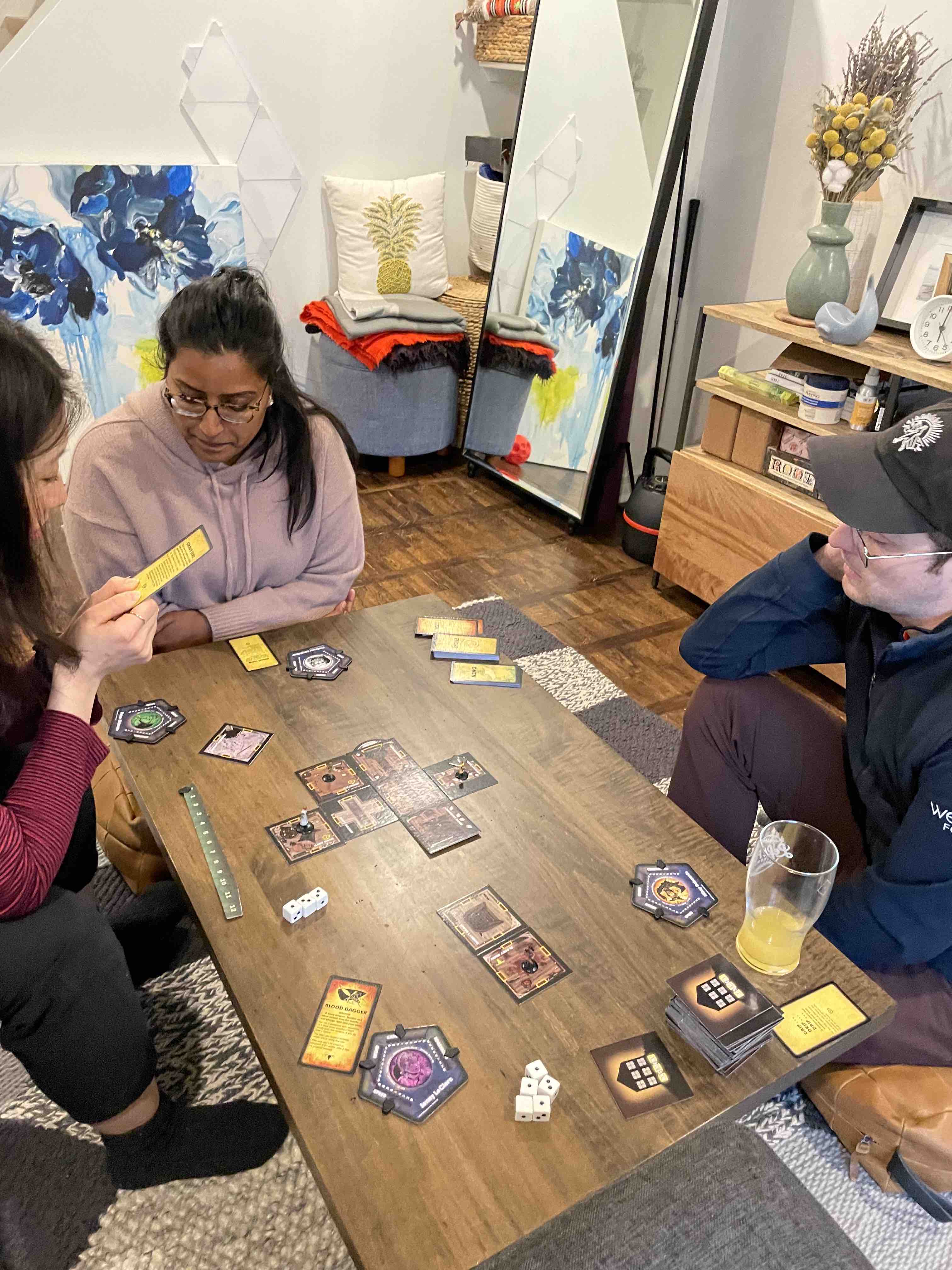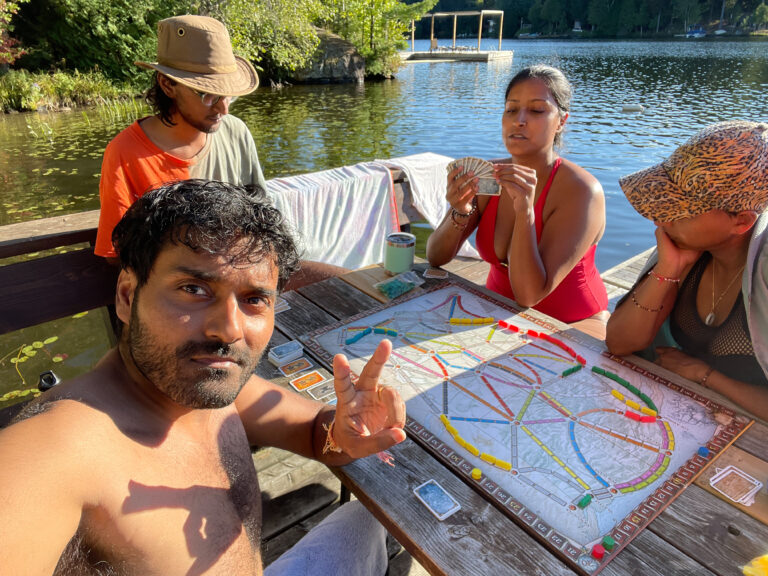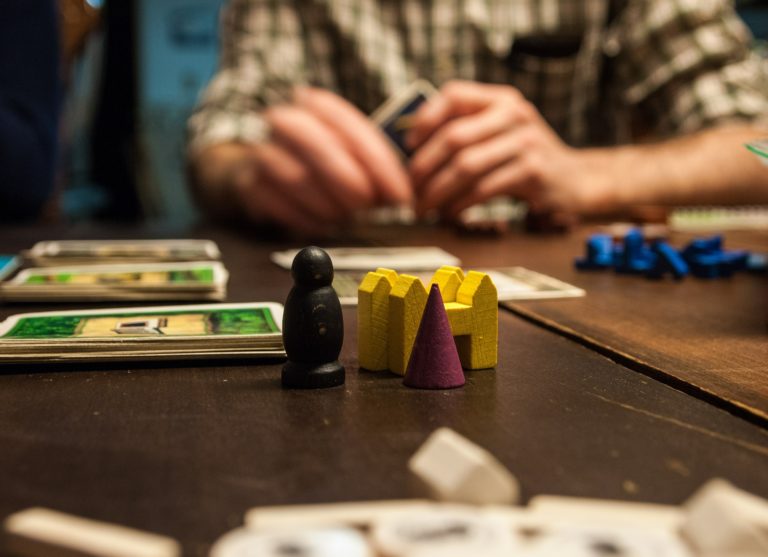Some of my fondest memories from my time at university was playing board games late at night in between studying.
It was a perfect way to recharge and refocus my mind, create and reinforce friendships, as well as build up some friendly competition.
Although there were many board games to choose from during those university days, some games were definitely more fun to play than others.
Personally, I liked playing board games that had a hint of competitive, were easy to explain, had great repeat playability, and weren’t too long or too short to play.
So, here are my top picks for the best board games for college and university students.
Article Contents:
- Ticket to Ride · 35 – 60 mins · 2 to 5 player
- Catan · 60 – 90 mins · 2 to 5 player
- Carcassonne · 35 – 45 mins · 2 to 5 player
- Monopoly Deal · 15 – 20 mins · 2 to 5 player
- Cards Against Humanity · 15 – 30 mins · 2 to 5 player
- Codenames · 20 – 40 mins · 4 to 8 player
- Risk · 90 – 120 mins · 2 to 6 player
- Kingdomino · 15 – 30 mins · 2 to 4 player
- Citadels · 20 – 60 mins · 2 to 8 player
Gameplay: 35 to 60 minutes
Players: 2 to 5
Transportability: Low
Difficulty to Learn: Medium
Setup Time: 10 minutes
Expansions: Yes
Price: $55 – $65
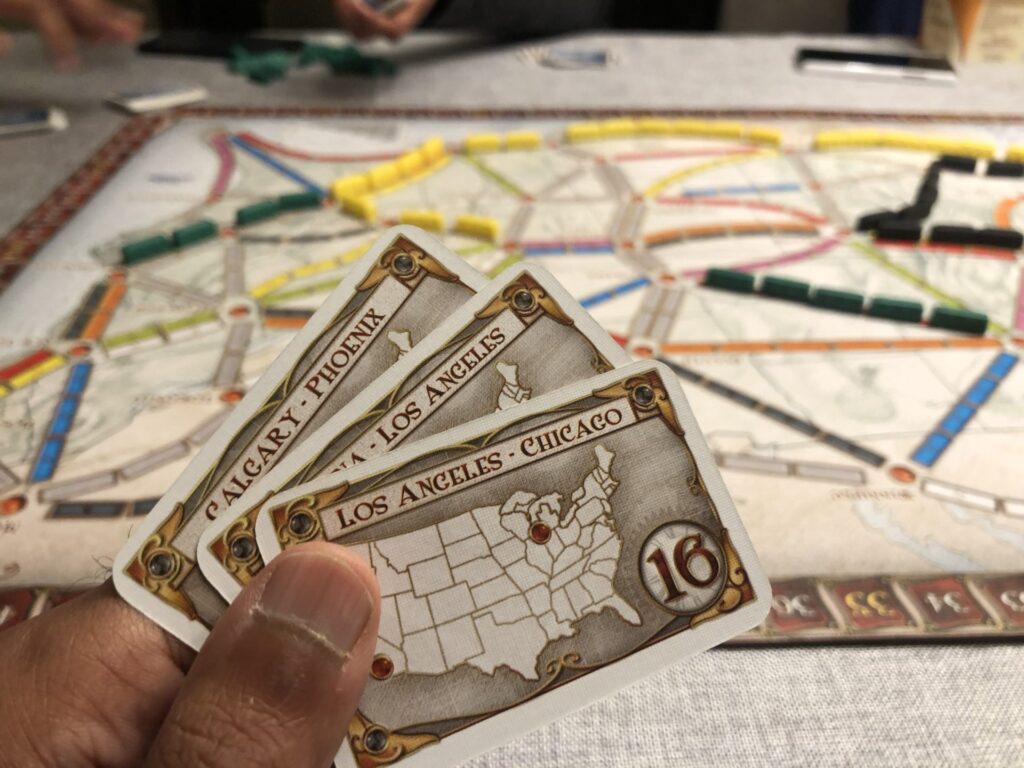
I know what you’re thinking: “How can a game based on railroads and trains be fun”?
Honestly, I thought the exact same thing too when I first heard about this board game. But, after my first time playing Ticket to Ride, I was hooked.
Quick Rules
The name of the game is to be awarded the most points by the end. Players can score points two ways: (1) By purchasing and placing rail cars between cities, and (2) by completing destination cards.
The game board itself consists of a map of different cities connected by crisscrossing railroad tracks. Each player has a total of 50 train cars which can be used to connect and span the tracks between cities.
Some cities only have one railroad between them, so it’s a mad rush to place your rail cars before anyone else. Otherwise, players might have to take a longer route around to fulfill their destination cards. At the end of the game, any destination cards that are not completed result in negative points being awards.
Why it’s Great
Ticket to Ride is such a great board game for college and university students because it takes the right amount of luck and strategy to win.
It’s very easy to setup and explain, and every game is different so you’ll never get bored!
Looking for the complete rules to play Ticket to Ride? Check them out here.
Gameplay: 60 to 90 minutes
Players: 2 to 5
Transportability: Low
Difficulty to Learn: Medium
Setup Time: 10 minutes
Expansions: Yes
Price: $40 – $60
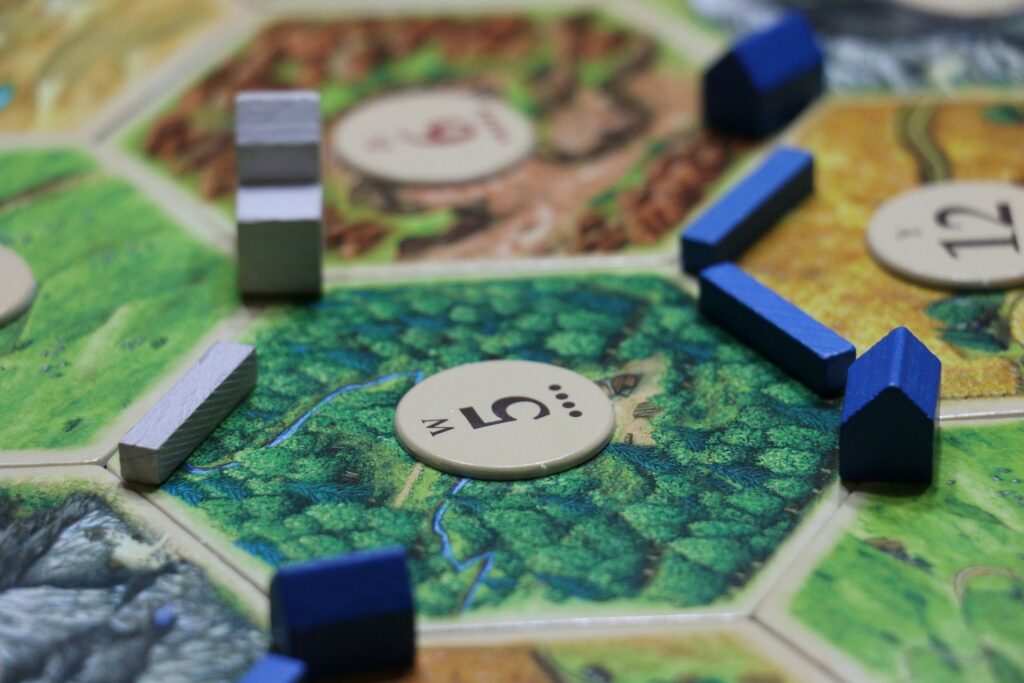
No doubt one of the most popular board games of all time, Catan (aka. Settlers of Catan) is an absolute banger of a board game to play.
Although it takes a bit of time to setup and explain, the game dynamics are very easy to learn.
Quick Rules
To play Catan, an “island” is created with resource tiles. Each tile is allocated a number. During each round, a die is rolled. Players connected to the resource tiles marked with the same number as the rolled die gain resource cards of that tile.
Starting with a single settlement, each player must grow and expand their civilization using resources collected over time. With every turn, players collect more and more resources cards which they can trade with other players or use to develop roads, settlements (1 victory point each) and eventually upgrade to cities (2 victory points each).
But maneuvering around the island and expanding your civilization isn’t simple. It takes strategic diplomacy, thoughtful development and a little bit of luck. The first player to reach 10 victory points wins.
Why it’s Great
Personally, I wasn’t introduced to Catan until much later in life. However, countless people I’ve played against have said they first played Catan in college and university.
Where were my Catan board game nights back then?!
Looking for the complete rules to play Catan? Check them out here.
Gameplay: 25 to 45 minutes
Players: 2 to 5
Transportability: Medium
Difficulty to Learn: Medium
Setup Time: 2 minutes
Expansions: Yes
Price: $35 – $45
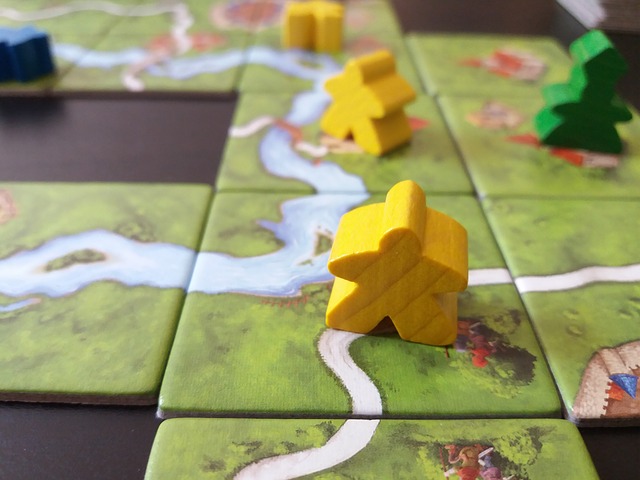
When you’re itching to play a two-player board game that’s both competitive and quick, Carcassonne is the game to play.
Setup consists of taking out the scoring board, choosing a color of “followers” and mixing up the game tiles face-down in the box. That’s it!
Quick Rules
A starter tile is placed face-up in the center of the playing table. Players then take turns choosing tiles randomly and placing them face up on the table, connecting new tiles to the existing tile(s). Tiles must fit together such that the “border” of the tiles work together.
A new tile, when connected to an existing tile, completes the map without producing a fallacy, such as a road ending abruptly, a field-edged tile connected to a city-edge tile, etc.
After placing a tile, the player can take one follower from his/her supply and place it on the tile that he/she just placed. The follower can be placed in a city (knight), on a road (thief), on a monastery (monk) or on a section of field (farmer).
By completing a road, city or monastery, points are awarded immediately and followers on the scored/completed structures are then placed back into the player’s supply. Farmers are scored at the end of the game, along with followers on unfinished structures.
The game ends when there are no more tiles to play and the player with the most points wins!
Why it’s Great
The randomness of the tiles, the additional challenges and opportunities presented from the expansions, and the ability to wreak havoc on your opponent’s gameplay are essential to why Carcassonne is a workplace favourite.
Looking for the complete rules to play Carcassonne? Check them out here.
Gameplay: 15 to 20 minutes
Players: 2 to 5
Transportability: High
Difficulty to Learn: Low
Setup Time: 1 minute
Expansions: No
Price: $10 – $15
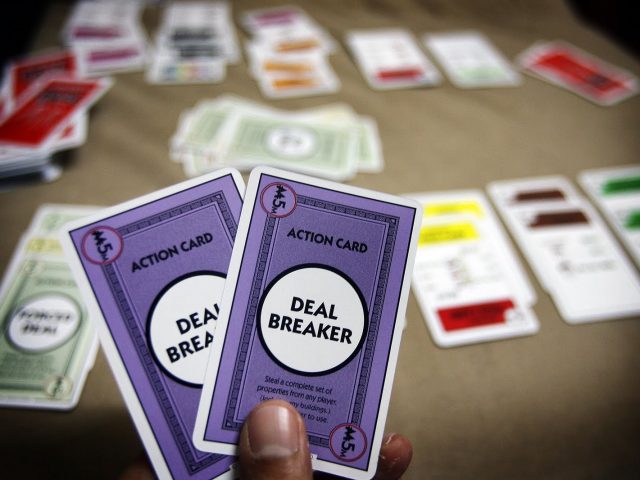
Whether it’s in elementary and high school cafeterias or college and university common rooms, Monopoly Deal has exploded in popularity among students.
That’s because Monopoly Deal is a card-based board game that is just as competitive as its older brother but at a fraction of the time (and cost!).
It’s loads of fun with virtually zero setup and takedown time, and is ultra-portable.
Quick Rules
The goal of the game is to collect 3 complete sets of properties of different colors. Each player starts with 5 cards. On your turn, you draw two cards and play up to three cards.
Cards played can be either added as money to your bank, properties, enhancements to your properties (increased rent) or actions (collect rent, birthday money or steal/swap property cards). It’s just that simple!
Why it’s Great
The low setup time, simple rules and high re-playability makes Monopoly Deal great for players with little free time. It’s the perfect board game for between (or during) college classes or university lectures.
And, you don’t have to wait 3 hours, or ruin friendships, to see who wins!
Looking for the complete rules to play Monopoly Deal? Check them out here.
Gameplay: 15 to 30 minutes
Players: 2 to 5
Transportability: High
Difficulty to Learn: Low
Setup Time: 1 minute
Expansions: Yes
Price: $10 – $15
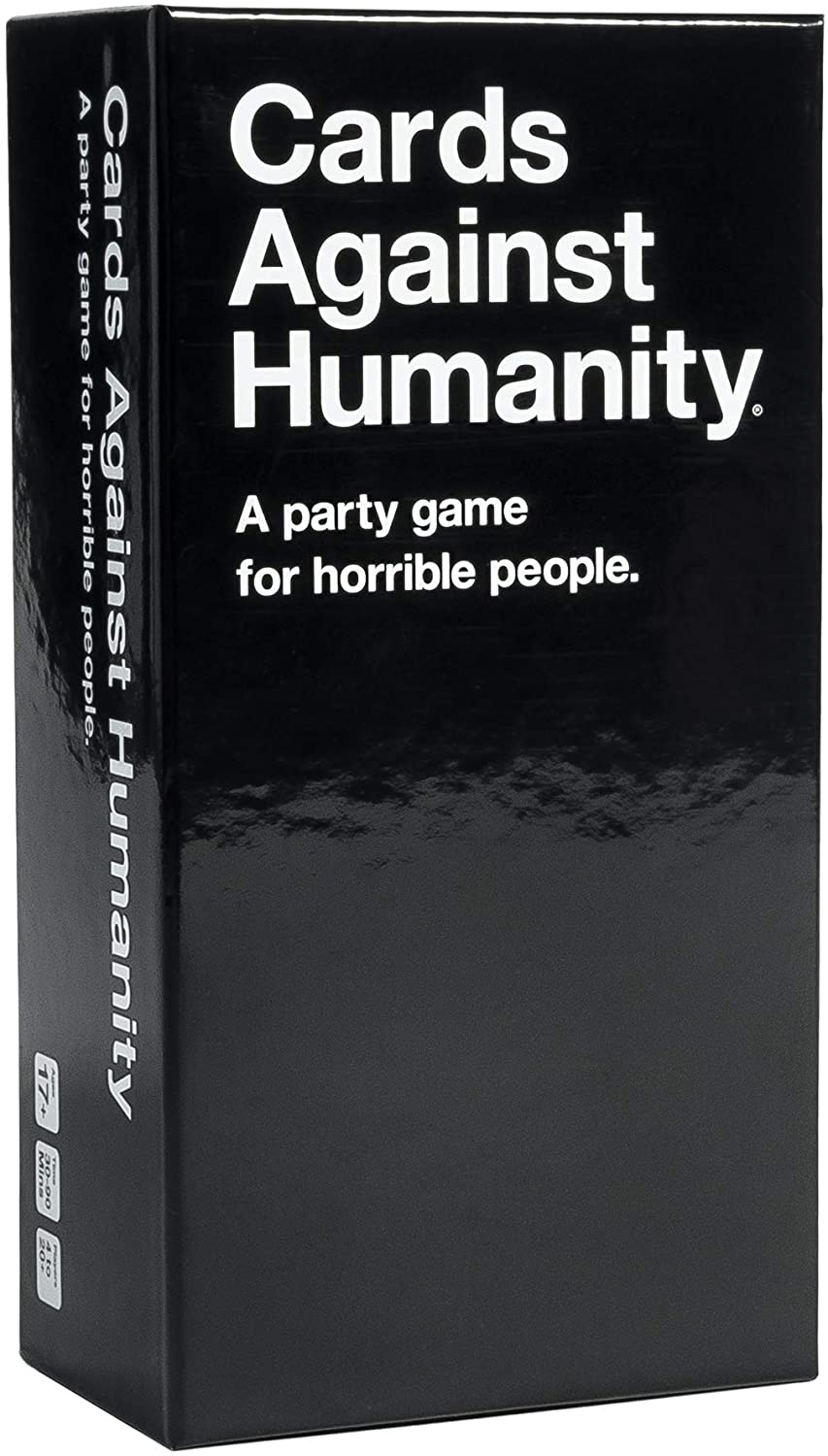
There’s an unwritten rule for college and university. You will, one day, eventually, play Cards Against Humanity.
It will change you; for good or for ill. And from that day forward, you will see your friends, neigh the planet, in a whole new light.
But all jokes aside, Cards Against Humanity is a card-based board game that is a riot to play, especially alongside a few beers.
It’s a fantastic ice-breaker, and perfect for introducing new friends to a group (or confusing the heck out of them).
Quick Rules
In this game, players attempt to complete fill-in-the-blank statements with words or phrases that are the most bold, brash, offensive, insensitive, or politically incorrect printed on playing cards.
Why it’s Great
Classified as a party game, it’s meant to incite innocent provocation and intense laughter.
That’s why college and university campus are guaranteed to have a game box or two within every student building.
Looking for the complete rules to play Cards Against Humanity? Check them out here.
Gameplay: 20 to 50 minutes
Players: 4 to 8
Transportability: High
Difficulty to Learn: Low
Setup Time: 5 minutes
Expansions: Yes
Price: $20 – $30
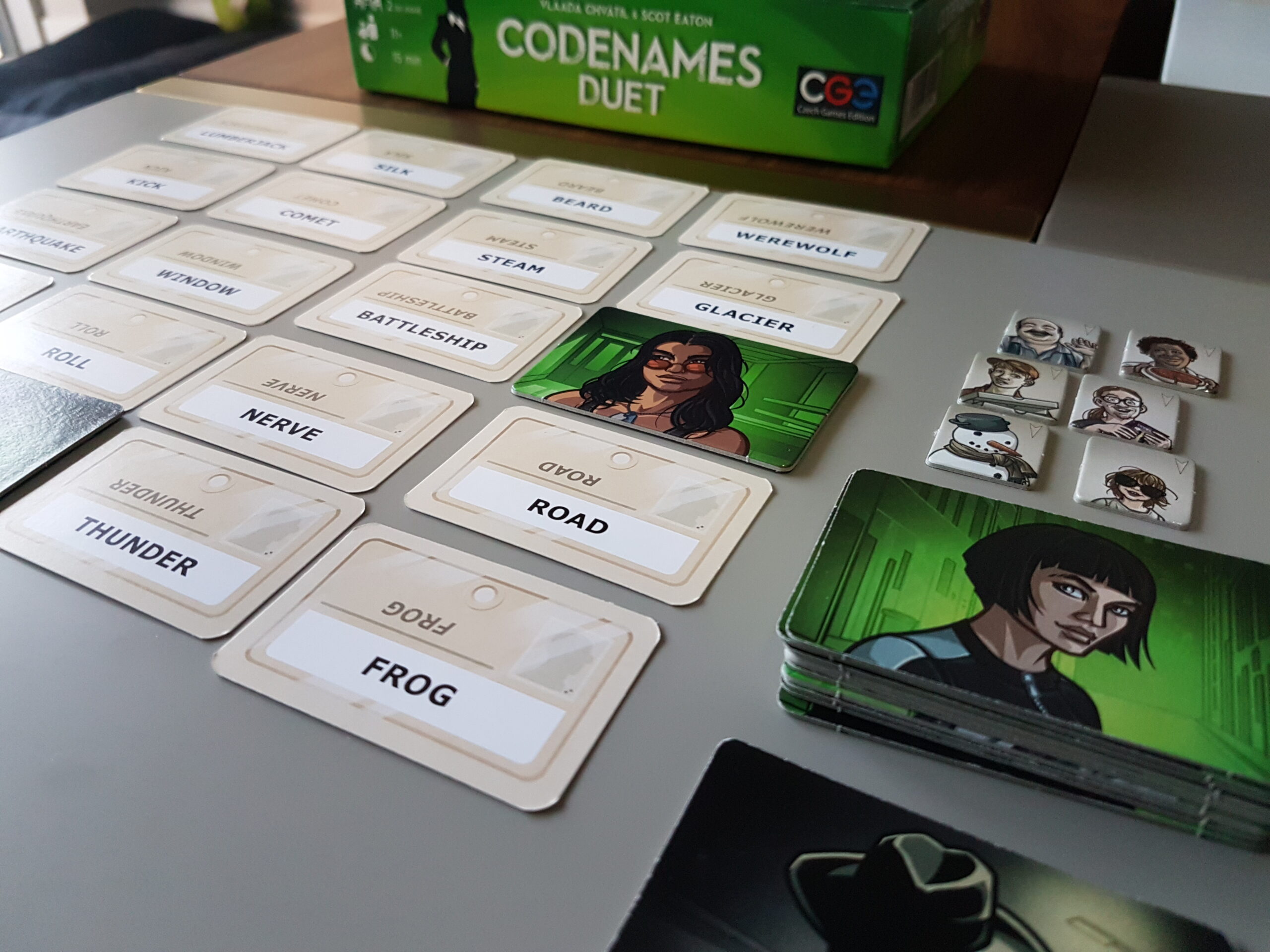
In the world of espionage, coded communication is quintessential for secrecy.
So, what if I said the following words: universe, spider, iron, stone, and camera. Would you be able to understand what I’m taking about? Would you be able to deduce the one word that can connect them all?
Well, if you said “Marvel”, you would be an expert spy master and would definitely be interested in play (and winning) Codenames.
Quick Rules
In Codenames, you and your teammates try to reveal friendly spies by properly guessing their codename with only one-word, one-number clues by the spy master.
But, guessing the wrong codename can reveal innocent bystanders, rival spies, or worse, the assassin.
Why it’s Great
Codenames is super easy to explain and can be a lot of fun, especially when playing with close friends at college or university parties.
It’s not as intensely competitive as other board games, but it’s still super engaging. And, it’s is a great way to build communication between peers, one word at a time!
Looking for the complete rules to play Codenames? Check them out here.
Gameplay: 90 to 120 minutes
Players: 2 to 6
Transportability: Low
Difficulty to Learn: Low
Setup Time: 10 minutes
Expansions: No
Price: $35 – $45
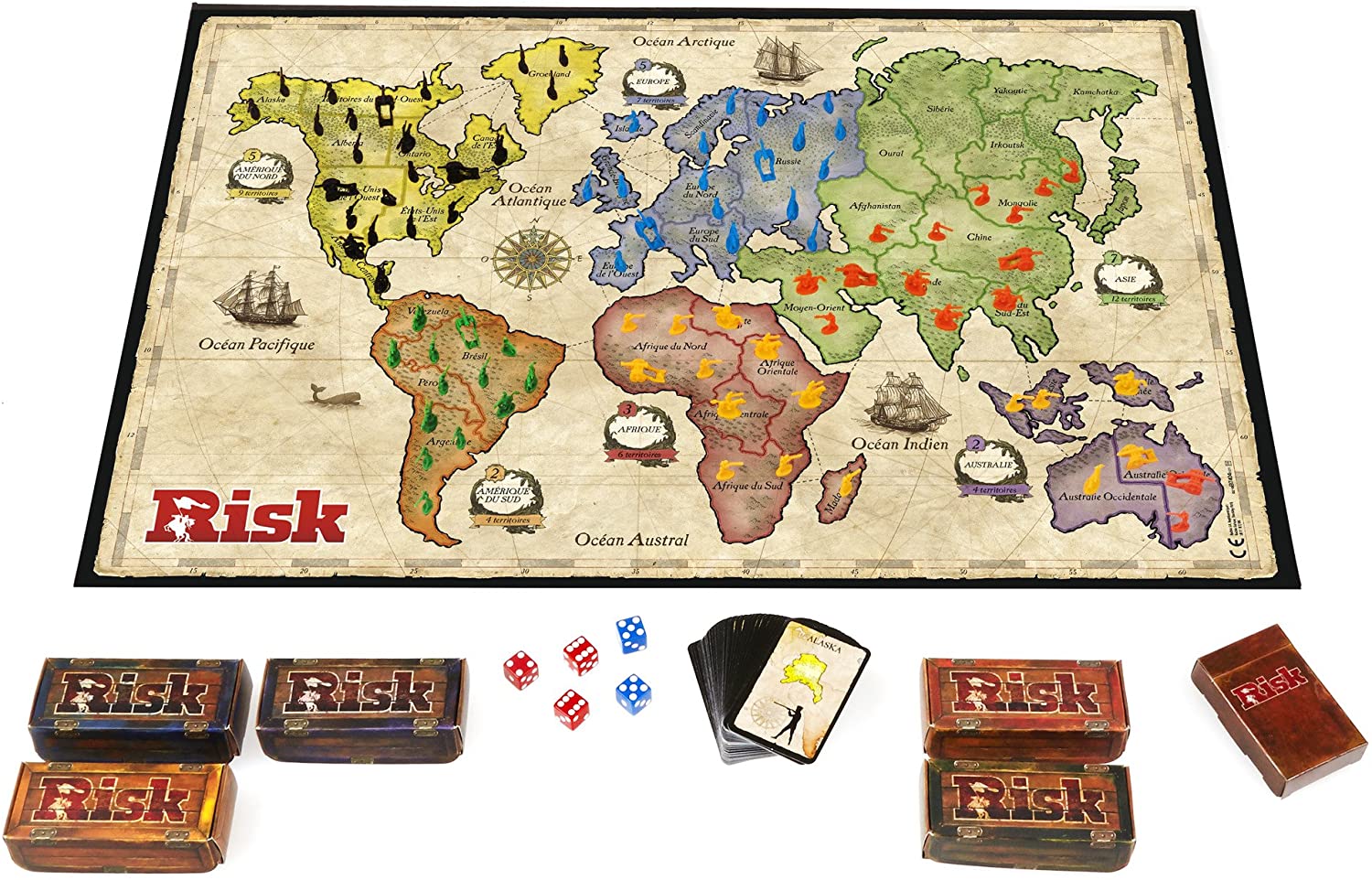
Many college and university students strive to, one day, become world leaders. But, if they have more sinister goals in mind, and want nothing less than total world domination, then they probably need some practice.
So, why not get them a board game purpose built to test out their ambitions!
Risk is a board game that pits players against one another for world-wide military supremacy. Territories and entire continents are up for grabs. But, it takes keen diplomacy, conflict resolution and a little bit of hutzpah to win.
Quick Rules
Players attempt to conquer enemy territories by building up their armies, allocating troops, and engaging in head to head battle.
However, you must be careful. Entire army battalions can be defeated by a single soldier if the dice roles in his favor…
Why it’s Great
Personally, I can’t tell you how many nights my friends and I stayed up way too late battling over Britain and clashing over Kamchatka. We campaigned for the Congo and skirmished for Scandinavia.
But, no matter who ultimately won… Collectively, we never forgot, and would make them pay the next round. Needless to say, Risk was a favorite and I can’t recommend it enough.
Looking for the complete rules to play Risk? Check them out here.
Gameplay: 15 to 20 minutes
Players: 2 to 4
Transportability: High
Difficulty to Learn: Low
Setup Time: 2 minutes
Expansions: Yes
Price: $25 – $35
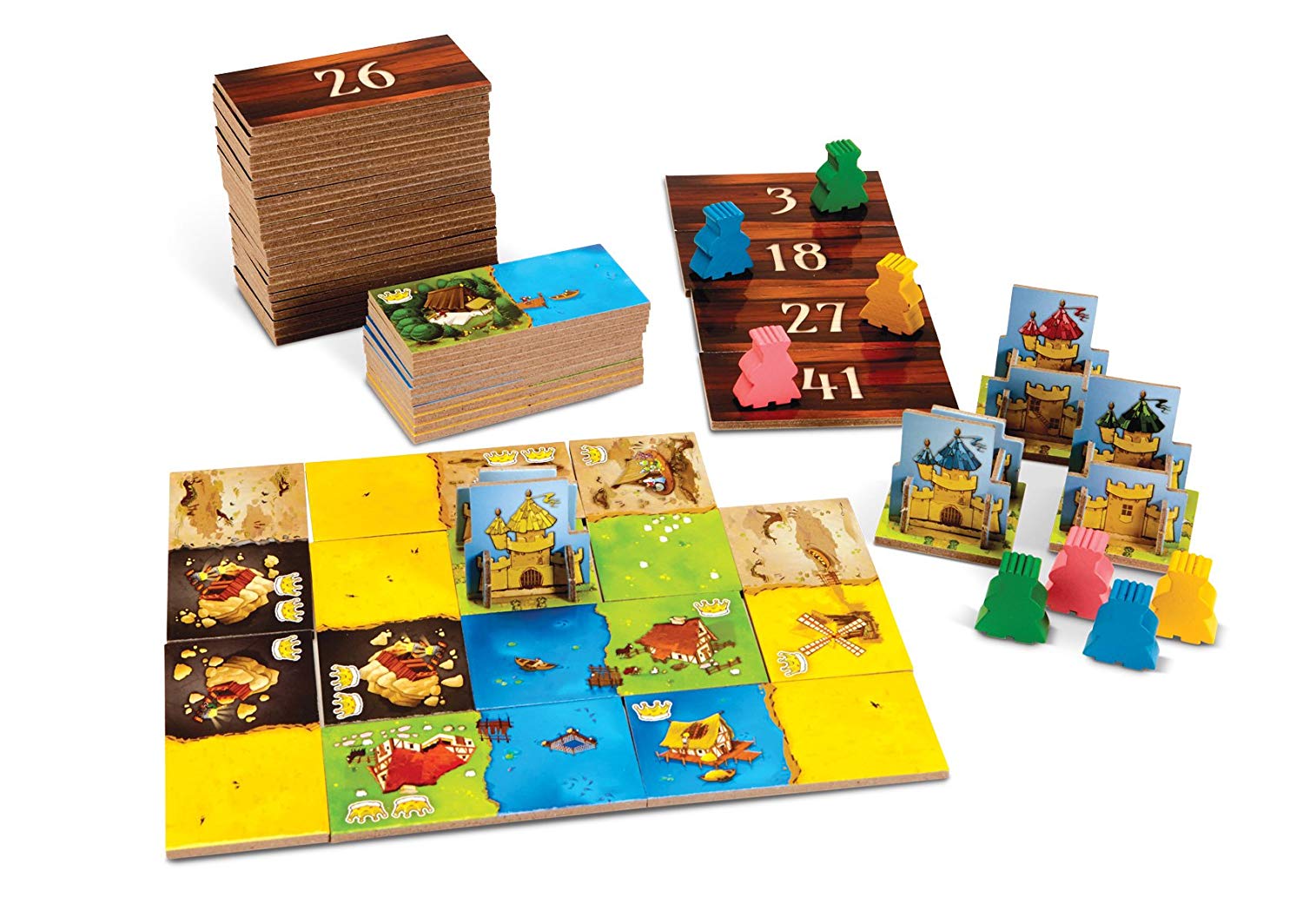
There are some board games that are just barbaric and merciless when it comes to conquest and competition, while others are more refined and civilized.
Enter Kingdomino [cue medieval instrumental music], a simple tile-based board game that blends feudalism with elements of modern expansionism.
But, whatever your thoughts are on empire-building and colonialism, Kingdomino is truly a fun board game to play with a small group of college or university friends.
Quick Rules
The board game contains 48 domino tiles. Each tile is comprised of two terrain squares. There are 6 types of terrain: farm, forest, grassland, mine, sea and swamp. Some terrain squares also contain a crown symbol (or two, or three!), which is extra important for scoring.
The goal is to build a 5 x 5 square kingdom around your castle and earn the most points based on the number of connected terrain territories.
The back of each tile is numbered 1 through 48. Typically, the higher the number, the higher the points-earning potential. Four tiles are drawn and arranged smallest to largest, then flipped over to reveal the terrain side. Players take turns selecting 1 of the 4 tiles, the player selection order of which is dictated by the previous round of selection and ranking of tiles.
Why it’s Great
Constantly struggling between selecting the highest earning tiles and being able to pick new tiles first makes Kingdomino a strategy-inducing grudge match from the get-go.
The low set-up time, simple rules and high re-playability makes Kingdomino an easy winner for college or university students looking for a little friendly competition.
Looking for the complete rules to play Kingdomino? Check them out here.
Gameplay: 20 to 60 minutes
Players: 2 to 8
Transportability: High
Difficulty to Learn: Low
Setup Time: 5 minutes
Expansions: Yes
Price: $20 – $30
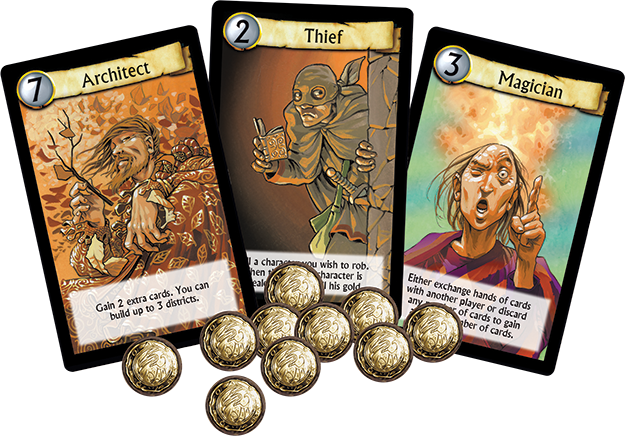
In life, we need to develop the ability to wear different “hats” when it comes to our role in society. Some hats manifest as authority figures and are virtual crowns. Whereas other hats transform us into sinister and cunning personas if the situation calls for it.
So, it goes without saying that being able to master many roles and change hats effectively will certainly lead to success… which can also be said about Citadels, the board game!
Quick Rules
During the game, players take turns selecting 1 of 8 character cards in secret. Each character has their own unique ability, which becomes evident during the action phase of gameplay.
Some characters give you more points, others let you chose your next character first, and others all-together block rival characters from maneuvering during the action phase.
The goal is to systematically choose characters that help increase your income so that you can build district cards (which earn you points). Once any player builds their 8th district card, the game ends, and the player with the most points (see scoring rules) wins!
Why it’s Great
In Citadels, and in life, understanding how and when to change roles to benefit your end-game will lead to triumph.
If only college and university could teach students these valuable gaming and life-lessons, we’d all benefit…
Looking for the complete rules to play Citadels? Check them out here.
College and university is stressful enough as it is. So, why not take a break from studying to hang out with friends and play some board games?
What board games did you play in college or university? Let me know your favourites in the comments below!
This article contains affiliate links, which help support this blog at no cost to you!

